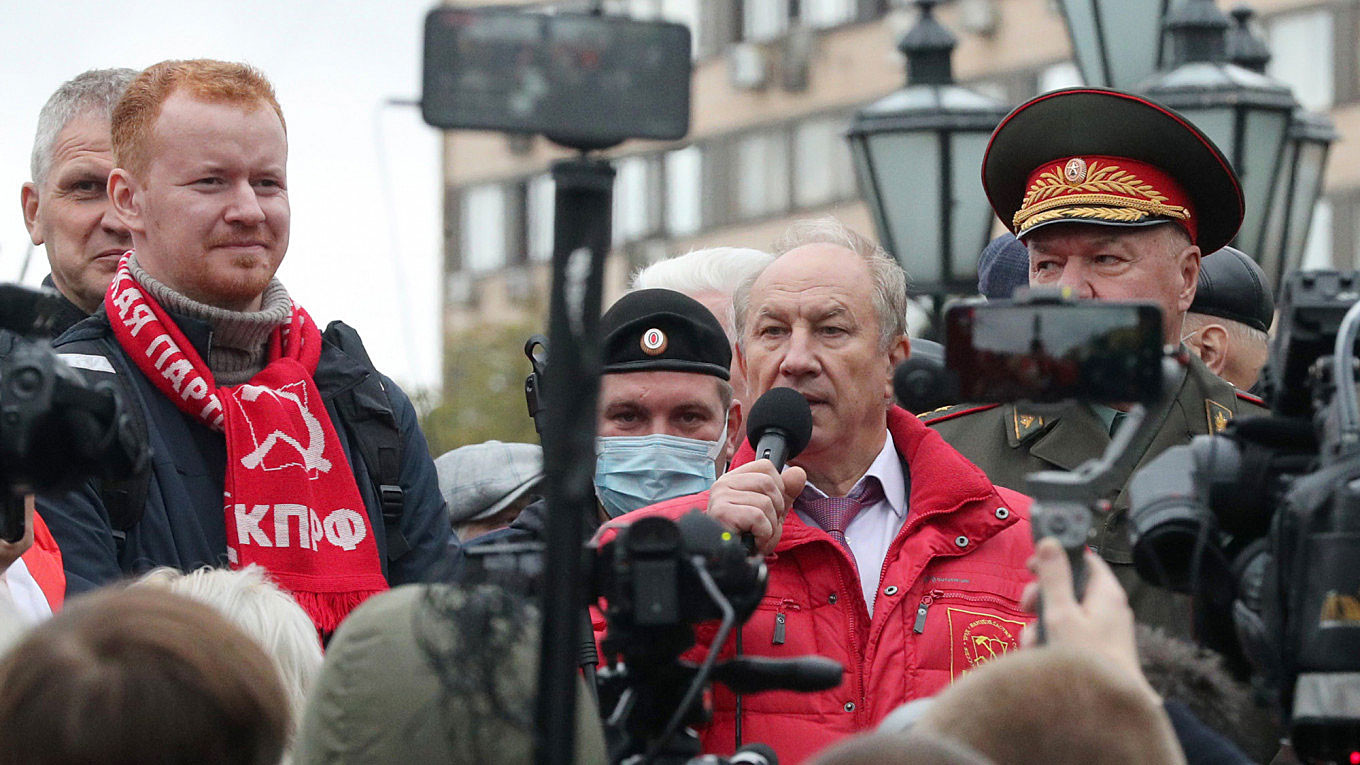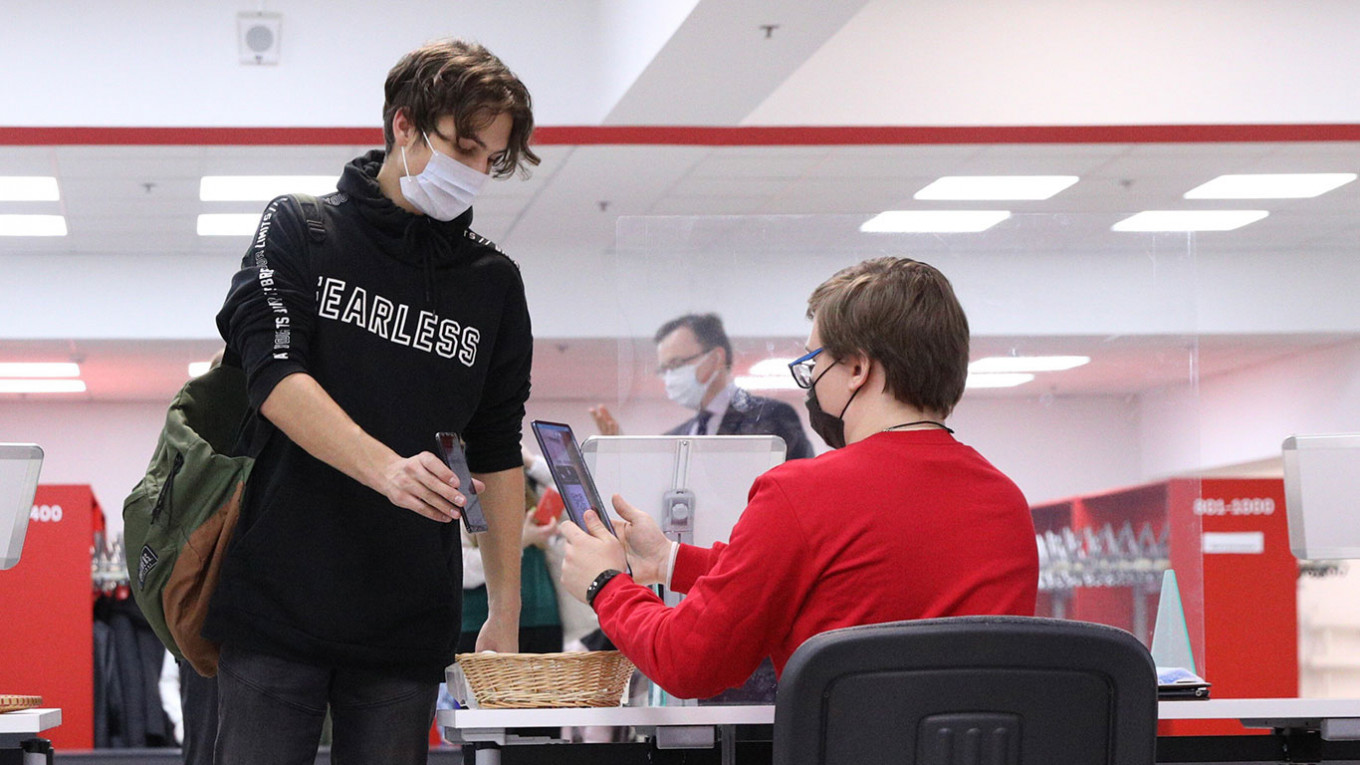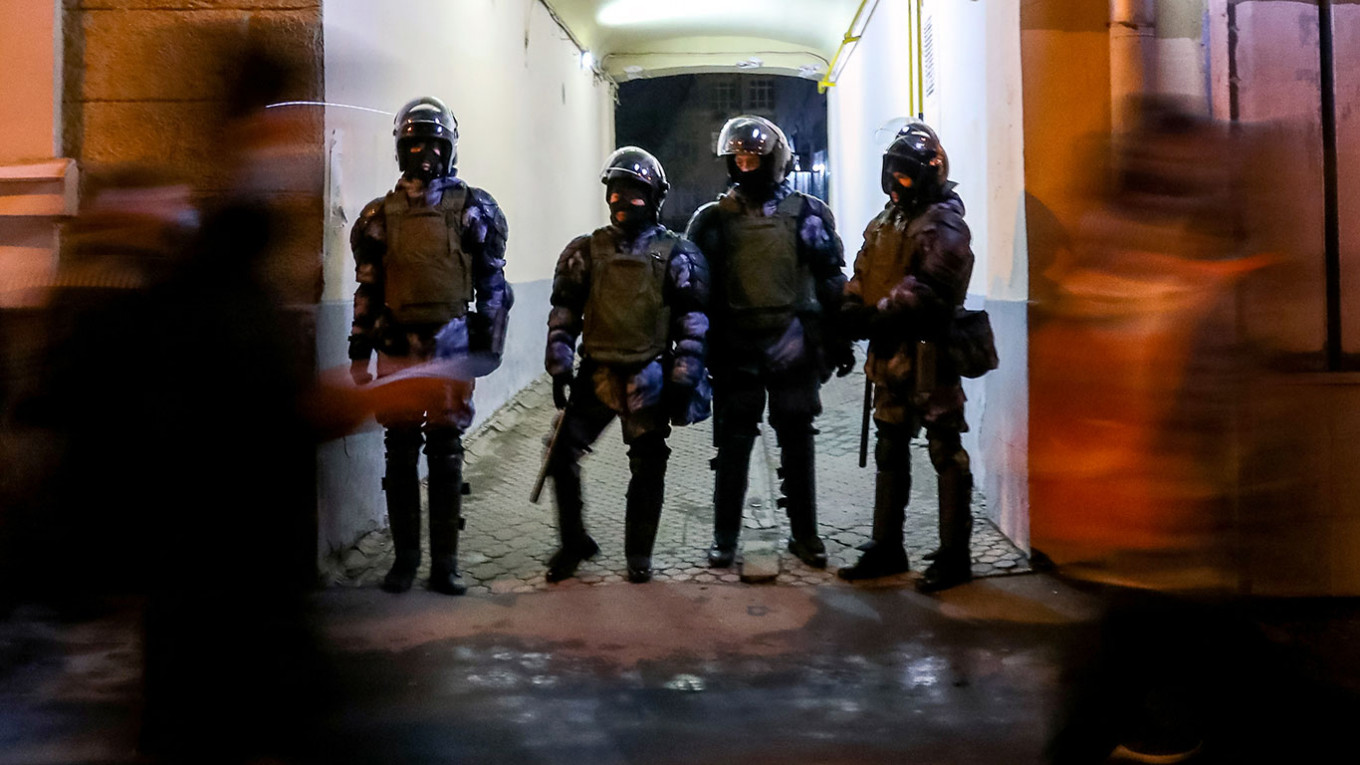The coming year in Russian politics is likely to be marked by continued repression of the remnants of political opposition and independent media, experts told The Moscow Times.
After a year in which the radical “non-systemic” opposition around jailed activist Alexei Navalny was all but destroyed, and a host of independent media outlets were declared “foreign agents” as Russia took a rapid authoritarian turn, analysts agree that more is to come.
“The regime will remain authoritarian and continue stamping out civil society,” said Andrei Kolesnikov, an analyst at the Carnegie Moscow Center think tank.
“At this point, it can’t stop itself.”
But even as the state widens the net of repression, other challenges are set to influence Russia's politics in the year ahead, ranging from economic stagnation through the continuing pandemic to climate change.
Communists and Tech Companies
“At the very minimum, we shouldn’t expect any political thaws, or a let-up on the opposition,” said Tatiana Stanovaya, founder of R.Politik, a political consultancy.
“We’ll see a further tightening of the laws, there’ll be more foreign agents, undesirable organizations and political prosecutions.”
With the movement around Alexei Navalny — the dominant anti-Kremlin force for a decade — now smashed and its leaders in jail or exile, and much of Russia’s civil society dismantled, the security services are likely to seek out new opponents to target under their sweeping powers.
According to Stanovaya, one obvious target is foreign IT giants, whose position in the Russian market has come under pressure in the last year.
The Russian authorities’ successful campaign to force Google and Apple to remove mention of Alexei Navalny’s tactical voting scheme in advance of the September State Duma election, and their demands that social networks Facebook, Twitter and TikTok delete content identified as illegal may set the stage for a renewed push to bring Russia’s internet under Kremlin control.
Already in December, the buyout of Russia’s homegrown Facebook competitor VKontakte by Gazprom and the appointment of a new, Kremlin-linked CEO may hint at more serious attempts by the government to make good on its promises to create a “sovereign Internet” for Russia.
“There are likely to be serious changes in the relationship between the state and internet giants,” said Stanovaya.
Another candidate for repression is likely to be Russia’s Communist Party, parliament’s second largest.
Having ridden widespread discontent with the ruling United Russia party to a strong performance at the September Duma elections, the Communist Party (KPRF) came under pressure after some prominent members called for protests against alleged vote rigging in favour of United Russia.
Moscow KPRF boss Valery Rashkin, a leader of the party’s radical wing who had been active in pushing the party to cooperate with Navalny’s movement, was in October arrested on poaching charges he says are politically motivated. Having recently been stripped of his parliamentary immunity, he faces criminal prosecution and the loss of his seat.
For Konstantin Kalachev, head of the Political Expert Group think tank, the Communists are likely to face more problems in the new year, with the leadership pressured to expel radical lawmakers and members.
“The Communists are the last party that has managed to preserve some of its independence,” said Kalachev. “Naturally, the Kremlin doesn’t like that.”
For Kalachev, the Communists, many of whose younger cadres openly sympathized with Alexei Navalny and who still command a large, genuinely nationwide support base are now the authorities’ primary domestic challengers.
“To keep the country united, the authorities need enemies,” he said. “The non-systemic opposition has been destroyed, but the Kremlin still needs a fifth column. In the new year, that may well become the Communists.”

No Protests Likely
There is broad agreement among analysts, however, that major anti-Kremlin protests are unlikely in 2022.
After street demonstrations called by Navalny’s team earlier in the year were broken up with mass arrests and, in many cases, brutal violence, the risks of attending anti-Putin protests have simply become too high.
“There won’t be any major political turbulence this year,” said Alexei Mukhin, head of the Kremlin-linked Political Information Center think tank.
“If it does happen, it’ll be only in 2023, and it’ll be linked to the approach of the presidential elections the year after.
For many experts, the continuing pandemic, which has been used to criminalize street protests, will play into the authorities’ hands by counteracting widespread discontent.
“Civil society isn’t satisfied with the way things are, but Covid is a strong factor against dissent,” said Mukhin.
“If there were no Covid, then the situation would be much more tense.”
However, amid underlying discontent over sliding living standards, rising inflation and environmental issues, some experts believe that localized causes of discontent could provoke unrest in the provinces.
Experts see protests like those against the arrest of a popular local governor in the Far Eastern Khabarovsk region in 2020, or against a landfill project in the Arctic in 2019 as models for potential unrest this year.
For Stanovaya, one potential spur for action could be toughened Covid restrictions.
An angry reaction to the introduction of a nationwide system of QR codes restricting access to public spaces to the vaccinated, including the storming of several provincial government buildings, could presage future outbursts of unrest among Russia’s unvaccinated majority.
“If we see harsh restrictions, that could provoke anger outside Moscow. The public mood is dark and aggressive right now, and pandemic restrictions could tip the balance.”

Covid Continues
Observers also agreed that Covid will remain a challenge in the year ahead.
With Russia’s vaccination rate remaining below 40% amid widespread vaccine skepticism and soaring excess mortality, no end to the pandemic is in sight, a point recently conceded by Putin spokesman Dmitry Peskov.
“In terms of people’s readiness to vaccinate, the situation is improving only very slowly,” said Carnegie’s Kolesnikov.
“Without extra stimuli to vaccination, like mutual recognition of vaccines with the West, the vaccine campaign will fail.”
The Kremlin’s Covid policies in the year ahead will likely prioritise avoiding the political fallout of unpopular restrictions rather than minimizing the pandemic’s impact, say experts.
“The Russian authorities are very concerned about staying on the right side of public opinion,” said Kalachev, of potential vaccine mandates.
“The Kremlin is not about to sacrifice its popularity for the sake of public health.”
Even so, with support for vaccination in polls ticking up, albeit very slowly, Kalachev suggested that the severity of the epidemiological situation is such that Russia is likely to introduce some kind of nationwide compulsory vaccination program, should other countries do likewise.
“We’ve tended to lag a little behind Europe in terms of dealing with Covid,” he said.
“But the basic idea of compulsory vaccinations is becoming more widespread and more popular. In the end, circumstances will lead Russia in the same direction as everyone else.”
Economic Stagnation
Experts also agree that Covid will continue to exert a drag on Russia’s economic recovery, presenting a political problem for the Kremlin.
Some expect the state to ramp up spending in response, with special focus on the National Projects — a series of ambitious programs aimed at raising living standards that remain so far largely unimplemented.
“There will be a lot of focus on social spending, aimed at particularly vulnerable groups,” Mukhin forecast, recalling a raft of one-time payments made to military personnel and pensioners ahead of the fall Duma polls.
“That will unfortunately increase inflation, but it will calm some of the social discontent down.“
But with economic growth likely to be limited, others caution that with inflation high, GDP growth low, and climate change-driven declines in Russia’s fossil fuel exports on the horizon, the Kremlin’s ability to defang social discontent is waning, and that Russian politics is becoming less predictable as a result.
“It’s impossible to say what is going to happen, or whether new unrest will break out,” said Carnegie’s Kolesnikov.
“But it’s going to be harder for the state to buy the population’s loyalty.”
A Message from The Moscow Times:
Dear readers,
We are facing unprecedented challenges. Russia's Prosecutor General's Office has designated The Moscow Times as an "undesirable" organization, criminalizing our work and putting our staff at risk of prosecution. This follows our earlier unjust labeling as a "foreign agent."
These actions are direct attempts to silence independent journalism in Russia. The authorities claim our work "discredits the decisions of the Russian leadership." We see things differently: we strive to provide accurate, unbiased reporting on Russia.
We, the journalists of The Moscow Times, refuse to be silenced. But to continue our work, we need your help.
Your support, no matter how small, makes a world of difference. If you can, please support us monthly starting from just $2. It's quick to set up, and every contribution makes a significant impact.
By supporting The Moscow Times, you're defending open, independent journalism in the face of repression. Thank you for standing with us.
Remind me later.







